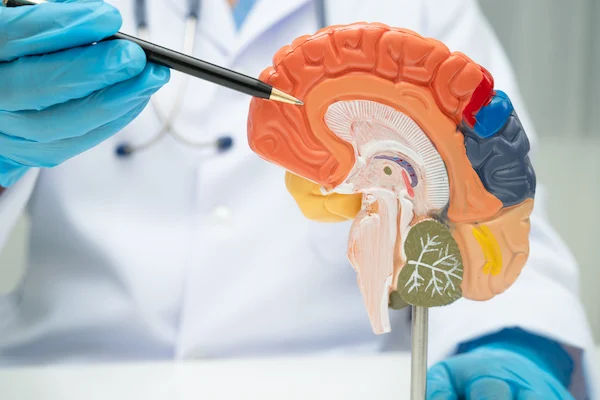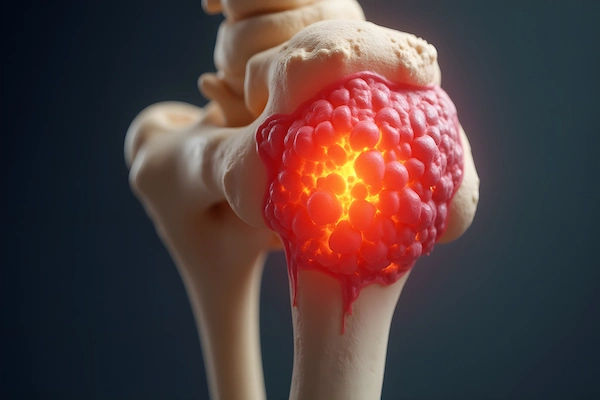Signs Of Urologic Cancers Types And Early Detection
Learn about the early signs and symptoms of urologic cancers like bladder, kidney, and prostate cancer. Discover the different types and the importance of early detection for better outcomes.

Written by Dr. Dhankecha Mayank Dineshbhai
Reviewed by Dr. Rohinipriyanka Pondugula MBBS
Last updated on 13th Jan, 2026

Introduction
Your body has a sophisticated filtration and waste-removal system: the urinary tract. When cells in this system—including the kidneys, bladder, prostate, and testes—grow uncontrollably, urologic cancers can develop. These conditions, which include common cancers like prostate and bladder cancer, often send early warning signals that are easy to miss or dismiss. This guide is designed to empower you with knowledge. We’ll walk you through the different types of urologic cancers, decode their often-subtle signs, and underscore the life-saving importance of early detection. Understanding these signals is your first and most powerful line of defense, turning anxiety into actionable awareness and paving the way for more effective treatment and better outcomes.
What Are Urologic Cancers? Understanding Your Urinary System
Urologic cancers are a group of malignancies that affect the organs of the urinary system and the male reproductive system. This system is responsible for filtering blood, creating urine, and removing waste from the body. The primary organs involved include:
- Kidneys: Two bean-shaped organs that filter blood to form urine.
- Bladder: A hollow, muscular sac that stores urine until it’s expelled.
- Ureters: Tubes that carry urine from the kidneys to the bladder.
- Prostate: A walnut-sized gland in men that produces fluid for semen.
- Testes: Two male reproductive glands that produce sperm and testosterone.
- Penis: The male external reproductive organ.
Cancer can develop in any of these tissues. While some, like prostate cancer, are extremely common, others are rarer. The key to navigating this group of diseases is recognizing that each cancer has its own unique set of symptoms, risk factors, and detection methods, which we will explore in detail.
Bladder Cancer: The Most Common Urologic Cancer
Bladder cancer occurs when cells in the bladder's inner lining begin to grow abnormally. It is one of the most frequently diagnosed urologic cancers, with a higher prevalence in men and older adults.
Consult Top Specialists
Key Symptoms of Bladder Cancer You Shouldn't Dismiss
The most common and critical early sign is hematuria, or blood in the urine. This can be:
- Gross hematuria: Blood that is visible, turning urine pink, red, or cola-colored.
- Microscopic hematuria: Blood that is only detectable under a microscope during a urinalysis.
Other symptoms include:
- Changes in bladder habits (feeling an urgent need to urinate, frequent urination).
- Pain or a burning sensation during urination (dysuria).
- Feeling the need to urinate but not being able to.
- Pelvic or lower back pain.
Who is at Risk for Bladder Cancer?
Major risk factors include:
- Smoking: The single greatest risk factor, causing about half of all bladder cancers.
- Chemical Exposure: Occupational exposure to dyes, rubbers, textiles, paints, and printing materials.
- Chronic Bladder Inflammation: Repeated urinary infections or bladder stones.
- Age and Gender: Most cases are found in people over 55, and men are about 3-4 times more likely to get it than women.
How Bladder Cancer is Diagnosed and Staged
If symptoms suggest bladder cancer, a urologist will typically perform a cystoscopy—a procedure where a thin tube with a camera is inserted into the bladder to view the inside and take tissue samples (biopsy). Imaging tests like CT urography are also used to see if the cancer has spread. If your condition does not improve after trying these methods, book a physical visit to a doctor with Apollo24|7 for further evaluation.
Kidney Cancer: Silent But Detectable
Kidney cancer (often called renal cell carcinoma) is known for being "silent" in its early stages, as it often causes no signs. Many kidney tumors are now found incidentally during imaging tests for other ailments, like an abdominal CT scan or ultrasound.
Recognizing the Often-Vague Signs of Kidney Cancer
When symptoms do appear, they can include:
- Blood in the urine (hematuria).
- Persistent pain in the side or lower back that doesn't go away.
- A lump or mass on the side or lower back.
- Unintended weight loss.
- Loss of appetite.
- Fatigue and fever (not caused by an infection).
It's crucial to note that blood in urine no pain is a possible scenario and is never normal, warranting immediate medical attention.
Risk Factors for Developing Kidney Cancer
Key risk factors are:
- Smoking: Increases risk significantly.
- Obesity: High BMI leads to changes in hormones that can promote kidney cancer.
- High Blood Pressure: The correlation is well-established, though the exact reason is unclear.
- Family History: Having a first-degree relative with kidney cancer.
- Advanced Kidney Disease: Especially those on long-term dialysis.
Prostate Cancer: A Focus on Men's Health
Prostate cancer is the most common non-skin cancer among men. It's typically a slow-growing cancer, but aggressive forms exist. Understanding its nuances is key.
Early-Stage Prostate Cancer Symptoms (Or Lack Thereof)
In its earliest, most treatable stages, prostate cancer often causes no symptoms whatsoever. This is why screening is so vital. When the gland grows large enough to press on the urethra, symptoms can mimic benign prostatic hyperplasia (BPH) and include:
Frequent urination at night (nocturia).
Trouble starting or stopping urination.
Weak or interrupted urine flow.
Blood in the urine or semen.
The Critical Role of PSA Screening
The PSA test is a blood test that measures prostate-specific antigen, a protein produced by the prostate gland. An elevated PSA level can be an early indicator of cancer, though it can also be raised due to infection (prostatitis) or BPH. The decision to get screened should be a shared one between a man and his doctor, considering his personal risk factors. Apollo24|7 offers convenient home collection for tests like the PSA test, making initial screening more accessible.
Advanced Prostate Cancer Symptoms
If the cancer spreads (metastasizes), symptoms can become more severe and include:
- Bone pain (especially in the back, hips, or ribs).
- Swelling in the legs or feet.
- Unexplained weight loss.
- Erectile dysfunction.
Testicular Cancer: Affecting Younger Men
Unlike other urologic cancers, testicular cancer most commonly affects younger and middle-aged men (ages 15-35). It is one of the most treatable cancers, especially when caught early.
The #1 Sign of Testicular Cancer: The Self-Exam
The most common first sign is a lump or swelling in either testicle, often painless. Performing a monthly testicular cancer self-examination is the best way to familiarize yourself with what's normal and detect any changes early.
How to do it: After a warm shower, gently roll each testicle between your thumb and fingers. Feel for any hard lumps, smooth rounded masses, or changes in size, shape, or consistency.
Other Symptoms and Risk Factors
Other symptoms can include:
- A feeling of heaviness or aching in the lower abdomen or scrotum.
- A sudden buildup of fluid in the scrotum.
- Pain or discomfort in a testicle or the scrotum.
- The main risk factor is an undescended testicle (cryptorchidism), even if it was surgically corrected in infancy. Family history also plays a role.
Other Urologic Cancers: Ureteral, Penile, and Adrenal
While less common, it's important to be aware of other cancers in this family:
Ureteral Cancer: Cancer in the tubes connecting the kidneys to the bladder. Symptoms are identical to bladder cancer
(blood in urine).
Penile Cancer: A rare cancer on the skin of the penis. Signs include a growth, sore, or rash that doesn't heal, often preventable with good hygiene.
Adrenal Cancer: A very rare cancer in the adrenal glands (located on top of the kidneys). Symptoms are caused by
hormone overproduction and can include weight gain, high blood pressure, and early puberty.
The Power of Early Detection: Why Timing is Everything
For all urologic cancers, the stage at which they are diagnosed is the single most important factor determining treatment success and survival rates. Early-stage cancers that are still confined to their organ of origin are vastly more treatable than those that have metastasized. This is why heeding your body's signals and pursuing prompt medical evaluation for any persistent symptoms is non-negotiable.
Common Diagnostic Tests for Urologic Cancers
If a urologic cancer is suspected, diagnosis may involve a multi-faceted approach:
1. Physical Exam & History: A doctor will discuss symptoms and risk factors.
2. Urinalysis: Checks for blood, infection, or other abnormalities in the urine.
3. Blood Tests: Including the PSA test for prostate cancer and tests for kidney function.
4. Imaging: Ultrasound, CT scans, MRI, and bone scans to visualize organs and check for spread.
5. Biopsy: The only definitive way to diagnose cancer, where a small tissue sample is removed and analyzed.
Key Takeaways and Quick Summary
- Blood in the urine (hematuria) is the cardinal warning sign for several urologic cancers and requires immediate medical attention, even if it's painless.
- Prostate cancer often has no early symptoms, making discussion about PSA screening with a doctor crucial for men, especially over 50 or with a family history.
- Testicular cancer is highly treatable. Young men should perform monthly self-exams to detect any lumps or changes early.
- Kidney cancer can be "silent"; many tumors are found by chance during scans for other issues.
- Smoking is a major, modifiable risk factor for bladder and kidney cancers.
- Persistent symptoms related to urination, pain, or unexplained weight loss should never be ignored.
- Early detection through awareness and timely consultation with a urologic oncologist dramatically improves outcomes.
Conclusion & Call to Action
Knowledge is your most powerful tool in the fight against urologic cancers. By understanding the different types, recognizing the subtle and not-so-subtle signs your body may be sending, and appreciating the critical importance of early detection, you move from a position of fear to one of empowerment. These symptoms can be alarming, but they are also a call to action—a reason to engage proactively with your health.
Don't fall into the trap of dismissing changes or hoping they'll go away. Your health is paramount. If you have experienced any of the symptoms discussed in this article, especially blood in the urine, or if you have significant risk factors, the next step is clear. Consult a doctor online with Apollo24|7 for an initial discussion of your symptoms and risk profile. They can provide expert guidance, order necessary preliminary tests with convenient home collection, and refer you to a specialist if needed. Taking that first step today could make all the difference for your tomorrow.Consult Top Specialists
Consult Top Specialists

Dr Syed Mateen Pasha
General Physician
2 Years • MBBS
Bengaluru
PRESTIGE SHANTHINIKETAN - SOCIETY CLINIC, Bengaluru

Dr. Harshendra Jaiswal
General Physician/ Internal Medicine Specialist
12 Years • MBBS , MD (General medicine)
Kolkata
108 DHANA DHANVANTARI Clinic, Kolkata
(25+ Patients)

Dr. Vivek D
General Physician
4 Years • MBBS
Bengaluru
PRESTIGE SHANTHINIKETAN - SOCIETY CLINIC, Bengaluru

Dr. Anand Ravi
General Physician
2 Years • MBBS
Bengaluru
PRESTIGE SHANTHINIKETAN - SOCIETY CLINIC, Bengaluru

Dr. Syed Ismail Ali
General Practitioner
7 Years • MBBS
Hyderabad
Apollo 24|7 Clinic, Hyderabad
Consult Top Specialists

Dr Syed Mateen Pasha
General Physician
2 Years • MBBS
Bengaluru
PRESTIGE SHANTHINIKETAN - SOCIETY CLINIC, Bengaluru

Dr. Harshendra Jaiswal
General Physician/ Internal Medicine Specialist
12 Years • MBBS , MD (General medicine)
Kolkata
108 DHANA DHANVANTARI Clinic, Kolkata
(25+ Patients)

Dr. Vivek D
General Physician
4 Years • MBBS
Bengaluru
PRESTIGE SHANTHINIKETAN - SOCIETY CLINIC, Bengaluru

Dr. Anand Ravi
General Physician
2 Years • MBBS
Bengaluru
PRESTIGE SHANTHINIKETAN - SOCIETY CLINIC, Bengaluru

Dr. Syed Ismail Ali
General Practitioner
7 Years • MBBS
Hyderabad
Apollo 24|7 Clinic, Hyderabad
More articles from Cancer
Frequently Asked Questions
1. Can frequent urination be a sign of cancer?
Yes, frequent urination, especially when accompanied by urgency or a weak stream, can be a symptom of prostate cancer in men or bladder cancer. However, it is more commonly caused by non-cancerous conditions like a urinary tract infection (UTI) or an enlarged prostate (BPH). If it's a new, persistent issue for you, it's best to get it checked out.
2. Is blood in the urine always a sign of cancer?
No, not always. Hematuria (blood in the urine) can be caused by many things, including UTIs, kidney stones, vigorous exercise, or certain medications. However, because it is the most common sign of bladder cancer, it should never be ignored. It requires a proper medical evaluation to rule out serious causes.
3. At what age should men start getting screened for prostate cancer?
The decision to screen is individual. Generally, men at average risk should discuss the pros and cons of PSA screening with their doctor starting at age 50. Men at higher risk (African American men or those with a father or brother who had prostate cancer before age 65) should have this discussion starting at age 45.
4. What does a testicular cancer lump feel like?
A cancerous lump is typically hard and feels like a pea-sized or larger fixed mass on the front or side of the testicle. It's usually painless, but not always. Remember, it's about knowing what's normal for you and reporting any changes, such as swelling, heaviness, or a new lump, to a doctor immediately.
5. Are there any preventative measures for urologic cancers?
While not all cases are preventable, you can significantly reduce your risk by:
- Not smoking or quitting if you do.
- Maintaining a healthy weight and diet.
- Staying hydrated with plenty of water.
- Managing high blood pressure.
- Being aware of occupational chemical exposures and using proper safety equipment.




